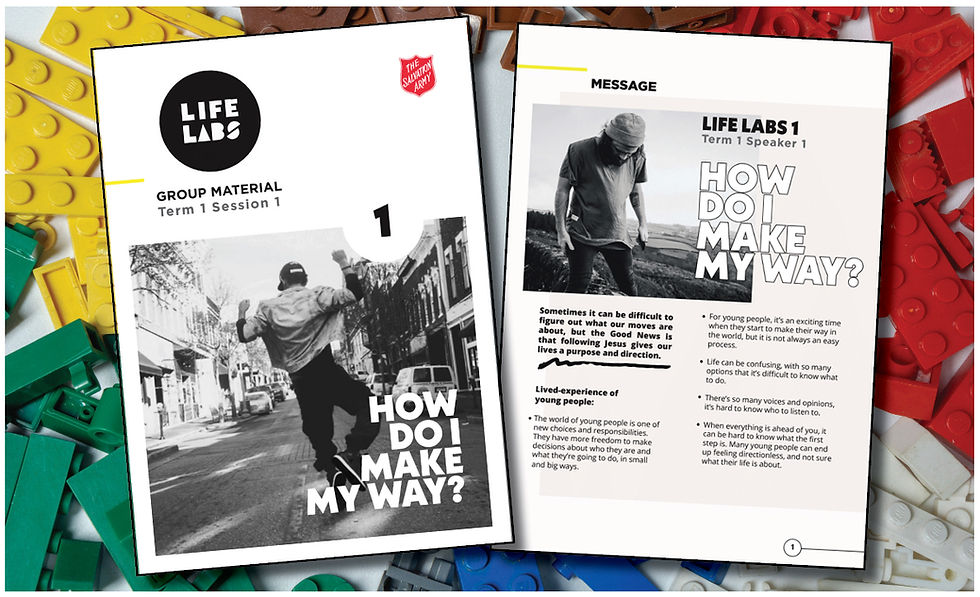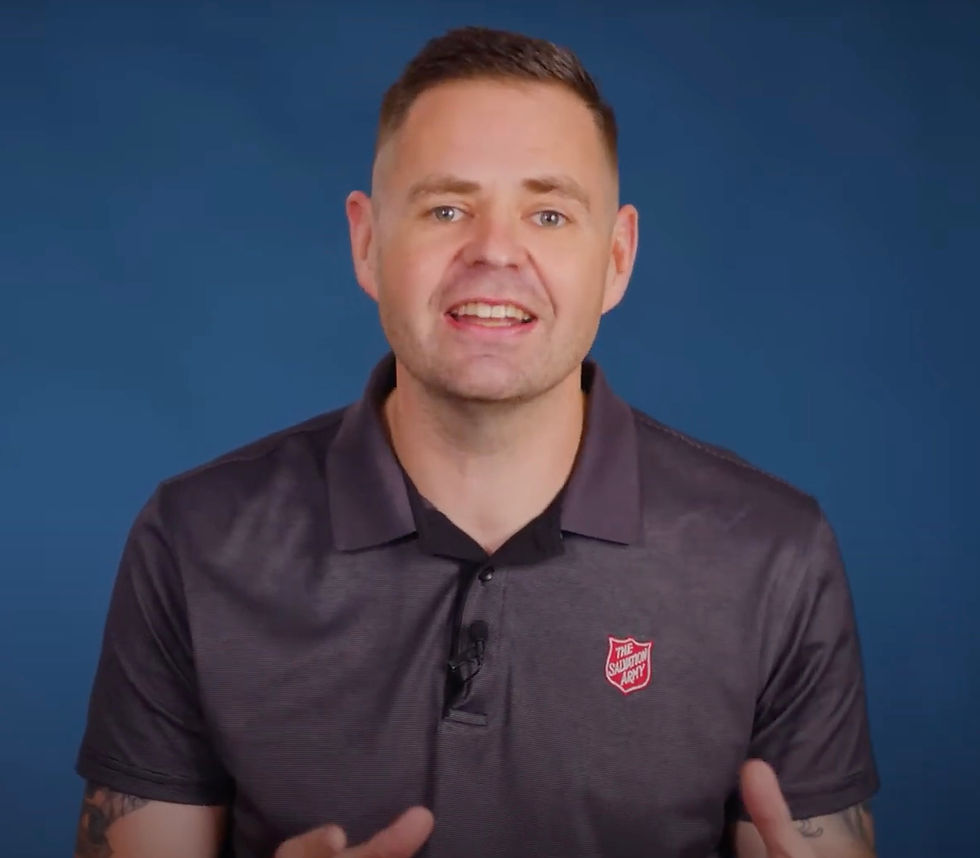Life Labs – a ‘big box of Lego’ for building young people’s faith

By ANTHONY CASTLE
Life Labs are a new activity-based resource designed by The Salvation Army’s Youth and Young Adults team that supports young people’s development and discipleship.
Think of a box of Lego.
“We’ve designed Life Labs like a big box of Lego, where you can pick out the pieces that work best for you and design it to fit within your youth ministry program,” explains Adam Purcell, Youth and Young Adults Secretary.

The labs provide a workshop space for groups of young people to process the opportunities and challenges of adolescence while connecting them to the Good News message. They aren’t a small group where young people learn about an idea but a workshop where they share and experience and reflect on what it can mean for their faith and life.
“We wanted to create a resource that filled the gap where there wasn’t an experienced employed youth ministry leader or even a volunteer,” says Adam Purcell. “Life Labs put a proven, best-practice program into their hands that answers the questions young people are asking by connecting them to the Good News.”
Life Labs are developed from the lives of young people, what they face, and what they need. The weekly programming is written from research undertaken across the territory, listening to lived experiences and voices of young people who can testify to a transformed life with the love of Jesus.
“Life Labs is an opportunity for anyone wanting to start a ministry for young people.”
“We are seeing corps across the territory establishing youth ministries – how exciting is that? Places where a ministry didn’t exist, and now it does, because of a willing person and the Life Labs resource,” Adam says.
Life Labs come ready-made, free, with material to help leaders run the sessions. Life Labs are created as an ‘off the shelf’ resource. Each week has a step-by-step leader’s guide to minimise the preparation time required to deliver the program. The design and structure of Life Labs mean that, at most, 30 minutes of preparation time each week is necessary. Local corps are seeing the benefit of this program in generating a youth program, building momentum and discipling young people.
“Youth ministries are being established,” Adam says. “They are growing, and young people are being discipled towards a resilient faith.”
Find out more about Life Labs here
Life Lab testimonials
“I have found that the conversations I have had with my group during the lesson are very in-depth and they continue to amaze me with the questions they ask about life, Jesus and God. The material is easy to understand which means it was able to be delivered in the right context. I have been able to let other leaders run the sessions when I am not here. Which means that they gain experience in running sessions.”
– Alison Fallaize, Marion Corps (SA/NT)
“Life Labs material is easy to use and navigate and also adapts to our particular setting. The big difference for us is that it has forced us to empathise with young people more about the genuine struggles of adolescence today. Mainly around identity, acceptance, loneliness and self-worth.”
– Craig and Ellen Farrell, Delacomb Corps (Vic.)
“What has been achieved by using Life Labs? The best thing that Life Labs have done for our youth group is that it leads to questions from our youth. Have been able to have great conversations about faith and Jesus with young people who have never been to church before. It has been a fantastic resource in terms of framing our night at youth. It’s a great base to build the night on.”
– Luke Terracini, Carindale Corps (Qld)
“Using the Life Labs material has meant we are able to connect often complex real-life issues that young people are facing with clear practical faith responses. Such responses have helped to gain greater trust and rapport with young people, and in addition, help create safe spaces for complex and challenging conversations.”
– Youth worker






